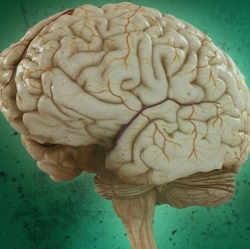
A five-year study by an international team led from the University of Leicester has found a way of ‘reversing’ symptoms of neurodegenerative diseases such as Parkinson’s and Alzheimer’s – using fruit flies as test subjects.
The researchers have demonstrated that genetic and pharmacological approaches can be used to lower levels of toxic metabolites in the nervous system and thereby alleviate several symptoms of neurodegeneration.
Professor Giorgini, of the internationally acclaimed Department of Genetics at Leicester, said: "Our research is focused on better understanding the mechanisms that contribute to onset and progression of disease symptoms in neurodegenerative disorders. These are diseases in which specific populations of nerve cells within the brain die, leading to severe problems in movement and cognitive deficits in patients.
"The two most common neurodegenerative disorders worldwide are Alzheimer’s and Parkinson’s disease. The treatment options for these diseases are limited, and to date no cures exist. Our hope is that by improving our knowledge of how these nerve cells become sick and die in the brain, we can help devise ways to interfere with these processes, and thereby either delay disease onset or prevent disease altogether."
The newly published research utilized the common laboratory fruit fly Drosophila melanogaster in order to explore the role of specific metabolites in the kynurenine pathway that cause loss of nerve cells in models of Alzheimer’s, Parkinson’s, and Huntington’s diseases.
Past studies by the Leicester team and others have shown some of these metabolites are toxic to nerve cells, and their levels are increased in these diseases. In the past the researchers have found that they can use genetic approaches to inhibit (or "mute") the activity of two critical enzymes in this pathway – TDO and KMO – which lowers levels of the toxic metabolites and reduces nerve cell loss in a fruit fly model of Huntington’s disease.
In the current study they have uncovered how inhibiting these two enzymes improves "symptoms" in flies because of increased levels of a "protective" kynurenine pathway metabolite known as kynurenic acid which counteracts the effects of the toxic metabolites.
Professor Giorgini said: "There is a fine balance between levels of "good" and "bad" metabolites that occurs in the kynurenine pathway. In disease, it shifts towards the "bad", and by inhibiting TDO or KMO, we shift it back to "good". For example, we find that if we inhibit either TDO or KMO in Huntington’s flies we reduce loss of neurons.
In Alzheimer’s or Parkinson’s flies we see extension of the shortened lifespan exhibited by these flies, and we also reverse the defects they have in movement. We have even used a drug-like chemical to inhibit TDO and found that this also alleviates ‘symptoms’."
Dr Breda said: "There is considerable interest in developing drugs that ‘turn down’ these enzymes, so our hope is that our work could lead to drugs to treat these devastating disorders in the future. Neurodegenerative disorders are devastating diseases with limited treatment options. The major risk factor for these diseases is aging – and as our society is becoming longer lived, we are facing dramatic increases in the number of individuals suffering from these disorders."
Professor Giorgini added: "We are excited by these results, as they suggest that TDO and KMO inhibition could be a general strategy employed to improve symptoms in a myriad of neurodegenerative disorders, not just Parkinson’s and Alzheimer’s. Indeed, five years ago we first showed that these manipulations could improve "symptoms" in Huntington’s disease model flies, so our next step is to validate our work in mammalian models and ultimately to see if such drugs could be helpful to patients in clinical trials"
